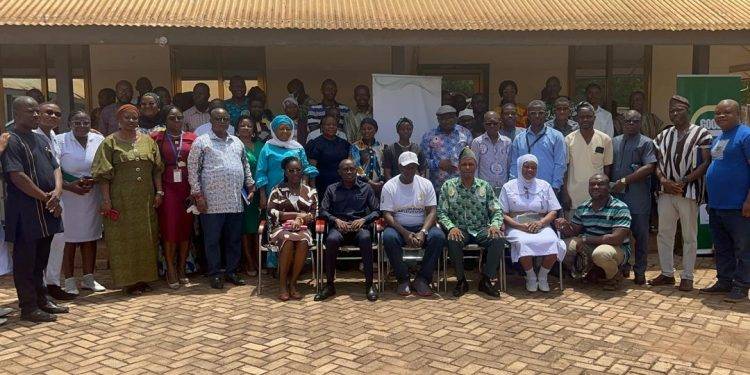The Northern Region of Ghana has witnessed a significant drop in meningitis
cases this year, with only one patient currently receiving treatment at the
Tamale Teaching Hospital. This marks a notable improvement, especially
considering the typical rise in cases during the dry, hot season.
Between November 2024 and March 2025, the region recorded just eight cases
of Cerebrospinal Meningitis (CSM), none of which resulted in death. According
to health officials, seven of the eight patients have been successfully treated
and discharged. The only remaining case involves a nine-month-old child who is
currently under medical care at the teaching hospital.
This progress was highlighted during a recent visit to the region by the
Acting Director-General of the Ghana Health Service. It was revealed that only
seven of the region’s 16 districts reported meningitis cases during the
five-month period, showing a clear improvement from previous years.
Dr. Hilarious Abiwu, the Deputy Director of Public Health at the Northern Regional
Health Directorate, expressed optimism about the region’s current meningitis
situation. He noted that the trend over the past few years has shown a
consistent decline in cases. Speaking during the presentation, Dr. Abiwu stated
that while there is no immediate cause for concern, the public must continue to
be vigilant.
He emphasized that the steady reduction in both suspected and confirmed
cases is encouraging. For instance, in 2024, the region recorded a total of
just 12 meningitis cases, which averages to about one case per month. All
affected individuals were treated without any loss of life.
Despite the positive outlook, Dr. Abiwu pointed out some challenges that
could potentially hinder further progress. A key concern is the absence of a
reliable funding source for ongoing public health initiatives. He highlighted
the withdrawal of support from the United States Agency for International
Development (USAID) as a major gap in the system.
Dr. Abiwu noted that the success of public health efforts depends heavily on
collaboration with various stakeholders and adequate financial backing. He
stressed the need for government and partners to explore new ways of financing
public health activities to ensure continued progress.
The Director-General of the Ghana Health Service, Professor Samuel Kaba
Akoriyea, also spoke about the issue during an interview with Channel One TV.
He reiterated that although the numbers are declining, it is essential for the
public to remain cautious, as meningitis remains a potential health threat in
some areas.
Professor Akoriyea added that his team has visited all regions within the
country's meningitis belt and confirmed the need for continued awareness
campaigns. He warned against complacency, stressing that the battle against meningitis
is not yet over. Ghanaians must continue to take preventive measures seriously
and seek medical attention promptly when symptoms appear.
As part of his visit, Professor Akoriyea met with District Health Directors
and Medical Superintendents. He also toured the Tamale Teaching Hospital, where
he discussed strategies to strengthen collaboration with healthcare
professionals to improve service delivery across the Northern Region.
Health authorities continue to emphasize the importance of early detection
and treatment, which they say has played a key role in the region’s success in
managing meningitis cases. Timely medical care can greatly improve recovery
outcomes and prevent complications associated with the disease.
With the current decline in meningitis cases, health officials remain
hopeful that continued efforts, public cooperation, and improved funding
mechanisms will further reduce the disease's impact in the Northern Region and
beyond.



No comments yet
Be the first to share your thoughts!